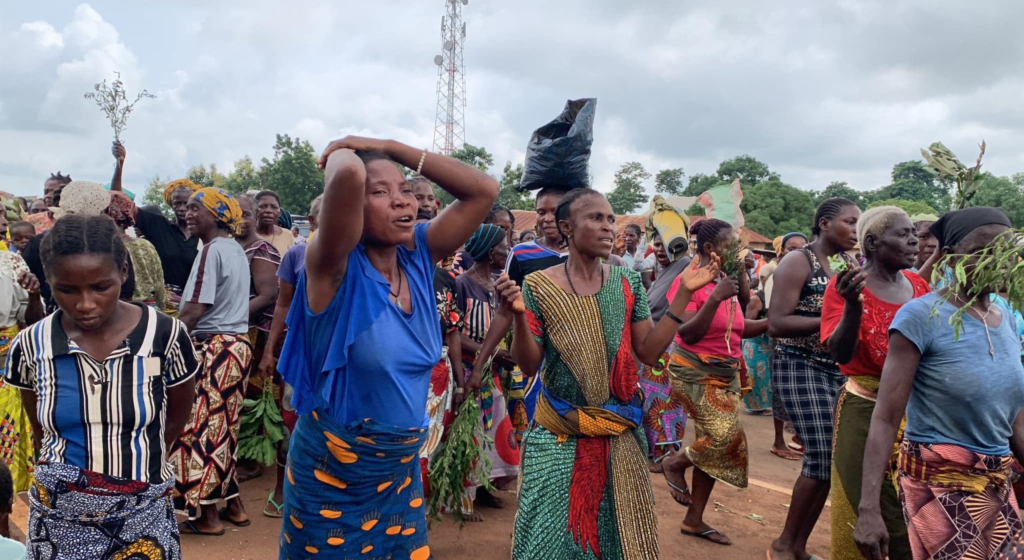Massacre! If this had happened in Paris, it would be front-page news with special reports, emergency meetings even candlelight vigils. But it happened in Benue, and Nigeria treated it like a local scuffle. Except it wasn’t. It was a massacre.
On the night of June 13, 2025, Yelewata, a quiet farming village in Benue State, was plunged into chaos. At least 200 people, mostly women, children, and displaced farmers, were killed by gunmen who surrounded the town and opened fire while villagers slept. Some were burned alive in their homes. Others were gunned down in a local market where they were sheltering after fleeing earlier attacks.
It was one of the deadliest massacres in recent Nigerian history. And yet, not a single state of emergency has been declared.
A Bleeding Middle Belt, Again
Benue State, known as Nigeria’s food basket, has become a killing field in recent years. Yelewata isn’t the first community to suffer, just the latest. In the weeks leading up to the June 13 attack, coordinated assaults swept through other Benue towns:
- May 25: Aondoana, Gwer-West
- June 1: Edikwu-Ankpali, Apa
- June 12: Akundu-Tyough, Makurdi
These dates were from this year alone, and it’s getting worse.
According to the Catholic Diocese of Makurdi’s Justice, Peace and Development Foundation (JPDF), over 150 bodies were buried within 48 hours. By the end of the weekend, the toll reached 200, with dozens still missing, and entire families wiped out. Some of the victims were displaced people who had already fled similar attacks in neighboring towns and found safety at came to Yelewata.
They found death instead.
“They Came From All Sides”
Witnesses say the attackers, over 40 of them, stormed in on motorcycles, yelling “Allahu Akbar” and firing into homes. Survivors like Titus Tsegba, who lost his wife and four children, described the aftermath in devastating terms: “They were burned into ashes beyond recognition.”
The attackers reportedly came from Nasarawa State, speaking Hausa and Fufulde. They circled the village to block escape routes and carried out what can only be described as a military-style operation. According to youth leader Mton Matthias, “They weren’t just killing, they were clearing land.”
Meanwhile, local markets were torched, entire harvests destroyed, and food stores razed, plunging the village deeper into hunger.
Where Is the Government?
President Bola Tinubu eventually called it “senseless bloodletting” and promised to visit the community. But beyond a prepared statement and vague orders to security agencies, there’s been no decisive action.
No air surveillance, or military deployment or even a declaration of a state of emergency.
It’s almost as if 200 Nigerian lives don’t count.
Benue’s deputy governor suspects Fulani herders. Survivors agree. But the federal government continues to tiptoe around naming perpetrators, hiding behind the old label of “farmer-herder conflict”, a term that now feels like PR spin for ethnic cleansing.
This Is Not a Clash. This Is Genocide.
When attackers burn people alive, destroy farmland, poison water, and target displaced families, it’s not a “clash.” It’s calculated.
Rev. Fr. Remigius Ihyula of JPDF called it what it is: a coordinated effort to erase Christians from their ancestral lands. And according to human rights advocate David Onyillokwu Idah, it’s genocide in slow motion: “This is what the Nazis did to the Jews, step by step.”
Meanwhile, disinformation campaigns are already circulating, falsely blaming Tiv militias. Survivors are pushing back, saying no such fighters were involved. The real perpetrators are hiding in plain sight, and they’re getting away with it, again.
What If This Happened in the UK?
Here’s the hard truth: if this happened in a European city or an American suburb, there would be breaking news, international condemnation, and possibly military intervention. But in Nigeria, even the U.S. Congress bill (H.R. 220) urging accountability for Nigeria’s religious violence is gathering dust.
Media outlets like CNN, BBC, and Al Jazeera gave it a headline, but not the outrage. Why aren’t journalists on the ground? How come there are no special reports. Has the world gone silent? Even with all this blood on the ground, the world still isn’t doing anything meaningful. Not even the people who claim to care about human rights
What Happens Now?
Yelewata is now a graveyard. And unless something changes, it won’t be the last. There needs to be:
- A state of emergency in Benue State
- Immediate deployment of federal security forces
- An international investigation into the pattern of killings
- Real consequences for governors and military officials who enable this silence
We can’t keep mourning in silence, while the rest of the country moves on like nothing happened.
Your Voice Matters
This is not just a Benue problem neither is it just a Christian problem. It’s a Nigerian problem, and the youth must be loud about it. Share. Document. Demand action. Because silence is the soil where injustice grows.
For more bold takes on Nigeria’s future, visit our website and follow us @Insidesuccessng for more updates and info. Subscribe to ISN for exclusive content, expert-led events, job opportunities, and more.



Leave a Reply